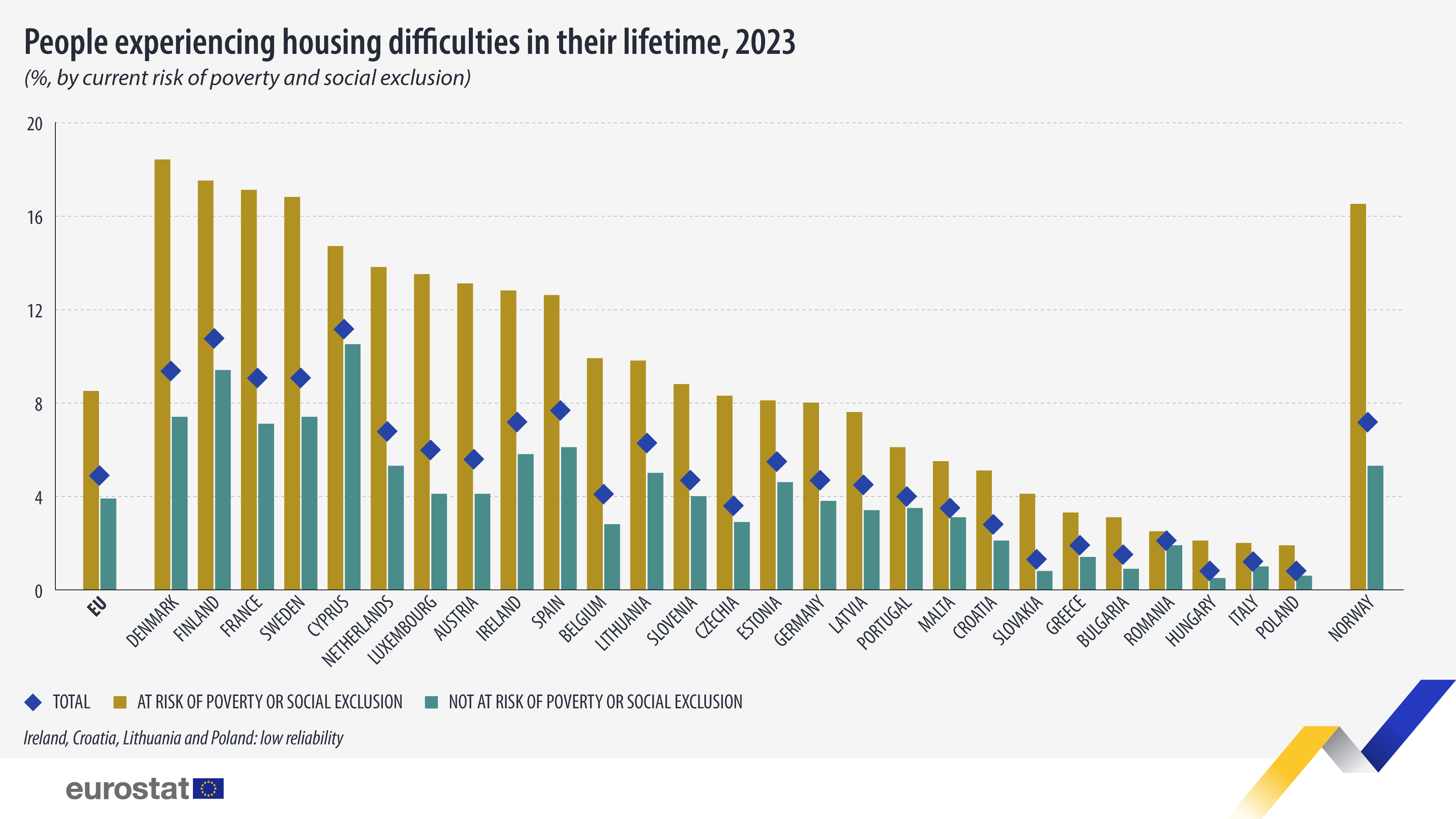According to data unveiled by Eurostat, this percentage was significantly higher for people at risk of poverty or social exclusion (8.5%). On the other hand, only 3.9% of people not at risk of poverty or social exclusion reported facing housing difficulties in their lifetime.
EU countries with the highest rates of housing difficulties among those at risk of poverty or social exclusion were Denmark (18.4%), Finland (17.5%) and France (17.1%). In contrast, the lowest rates were observed in Poland (1.9%), Italy (2.0%) and Hungary (2.1%).

People aged 65 and over reported the lowest rates of renting difficulties
At EU level, people aged 16 to 29 and 30 to 54 reported the highest rates of renting difficulties, 14.8% and 14.7%, respectively, while this rate decreased to 12.8% for those aged 55 to 64 and 6.7% for people aged 65 years or over.
Data show that people at risk of poverty or social exclusion at all ages suffer the most from renting difficulties. However, this pattern decreases with age.
When looking at people at risk of poverty or social exclusion, renting difficulties were higher at 27.7% for people aged 30-54 years, followed by 24.0% for people aged 55 to 64 and 22.1% for those 16 to 29 years. Among those aged 65 years or older, 12.9% of those at risk of poverty or social exclusion reported having renting difficulties, the lowest share.
Greece recorded the highest overall rate of renting difficulties
In 2023, 13.0% of the EU population aged 16 or over reported renting difficulties in the last 12 months (Figure 3). Households with dependent children were more affected, with 18.1% experiencing difficulties, compared with 10.2% of households without children.
Greece (26.1%), France (24.1%), and Spain (17.2%) had the highest overall rates of renting difficulties, while the lowest rates were observed in Romania (0.3%), Slovakia (1.1%), Belgium (4.3%), Germany and Hungary (both 4.7%).
For households with dependent children, France (33.2%), Greece (26.3%), and Spain (20.8%) reported the highest rates, while Romania (less than 0.0%), Slovakia (1.2%), and Bulgaria (3.7%) had the lowest. Among households without dependent children, Greece (25.9%), France (18.0%), and Slovenia (15.3%) faced the most difficulties, while the lowest rates were found in Romania (0.4%), Slovakia (1.1%), and Cyprus (2.5%).
Most EU countries reported higher rates of renting difficulties among households with dependent children compared with those without. The widest gaps were observed in France (15.2 pp) and Cyprus (12.1 pp). In contrast, minimal differences were observed in Slovakia (0.1 pp) and Greece (0.4 pp). Notably, households without dependent children reported higher renting difficulties than those with children in Lithuania (7.3 pp), Bulgaria (5.4 pp), Slovenia (3.7 pp), Croatia (0.6 pp), and Romania (0.4 pp).















